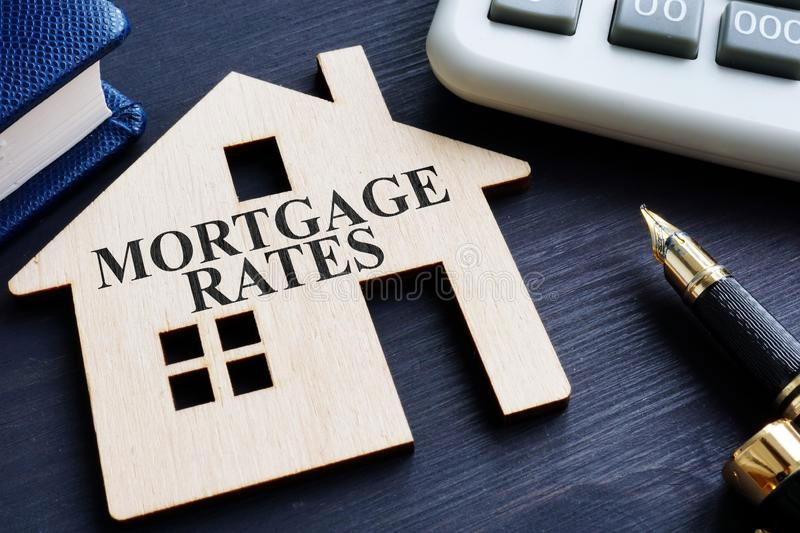Introduction
In terms of mortgages, it's simple to determine the amount you pay each month. However, understanding the specifics of interest rates for mortgages can be quite complicated. The good news is that a variety of calculators online will help you. However, it's recommended to learn the fundamentals regarding mortgage rates.
What is Mortage Interest?
It is an amount that is a percentage of your loan balance that is paid each month until the mortgage loan is fully paid off, together with the principal amount. It's an element in determining the cost per year of borrowing from a lender in order to buy a house or another property.
How are Mortgage Rates Established?
The mortgage lender determines mortgage rates. There is a myriad of variables that influence the manner in which mortgage rates are set. This could be:
● Loan to Value (LTV)
When you have a smaller amount of money, the likelihood of lending is increased. Because of this, it is not unusual for the interest rate to be less due to the greater deposit you have.
● The Cost of Funds
The lender has to finance your mortgage in a certain manner. The method by which the lender funds this will impact the mortgage rate. The majority of building communities do this with savings funds from their customers who are saving. Other options for funding include financing via wholesale markets.
● The Market
The mortgage rates available in the general market could determine where your lender might decide to set rates. While they are competitive, lenders will be required to think about their own business goals.
Types of Mortgage Rates
As strange as it sounds, there are generally various mortgage rates that could influence you differently.

● Posted Rate
These are the rates that lenders announce publicly. They're mostly used to determine your interest rate differential (IRD) in the event of a breach of the terms of your mortgage.
● Prime Rate
It is also called the prime lending rate. This overnight rate is established through the Bank of Canada and is utilized by institutions of finance to determine rates of interest for loans.
● Discounted Rate
This is the real cost of interest you cover when applying for a mortgage.
How are Mortgage Payments Calculated?
With the majority of mortgages, you have to pay back some of the money the loan was for (the principal) and interest each month. The lender uses an amortization formula to develop a payment plan that divides each installment into interest and principal. If you pay under the amortization schedule, your loan will be completed by the time it has reached its time, for example, 25 years. In the case of a fixed-rate loan, each installment is equal in amount. In the case of a variable-rate loan, the monthly payment will fluctuate in line with the loan's interest rate.

The length or term of your loan determines the amount you'll have to pay every month. The longer the loan term will be, the lower the monthly installments will generally be. However, the longer you wait to pay off the mortgage, the more expensive the cost of buying your home will be since you'll be paying interest for a longer time frame.
How Does a Mortgage Interest Rate Work?
Have you ever had a question about how mortgage interest work? Mortgage interest rates can vary according to larger financial aspects and investment practices. The secondary market can also play a role. Interest rates are just cited and determined as percentages. The amount you have to pay each month will reduce when you pay off the capital amount you borrowed, and the amount will decline when you pay off the capital amount. The interest rate you pay is based on your remaining balance percentage.
Fixed-rate loans are compounded every two years. This means the interest rate you're offered is less than the actual rate after adding compound interest. When you have a variable mortgage, you make the same monthly payment. But, if interest rates change, then so does the part of your payment that is geared towards interest. If interest rates rise and your payments increase, a greater portion of them is used to pay interest. However, when rates drop, you're paying more towards the principal. In other words, you'll pay off your mortgage more quickly.

A Guide to Learn About Low-Cost Ways to Transfer Money

Investing in Vanguard Index Funds: What You Need to Know

What Is the Definition of a Debit Balance?

What Exactly Is the Function of Cloud Storage?

Best Affordable Health Insurance Companies

What Prevents Bitcoins From Being Double-Spent?

Understanding The Difference Between Small and Large-Cap Stocks

The 5-Minute Trading Strategy

What Exactly Is a Notarized Signature?

How Does Mortgage Interest Work?

All about the Disposable Income
